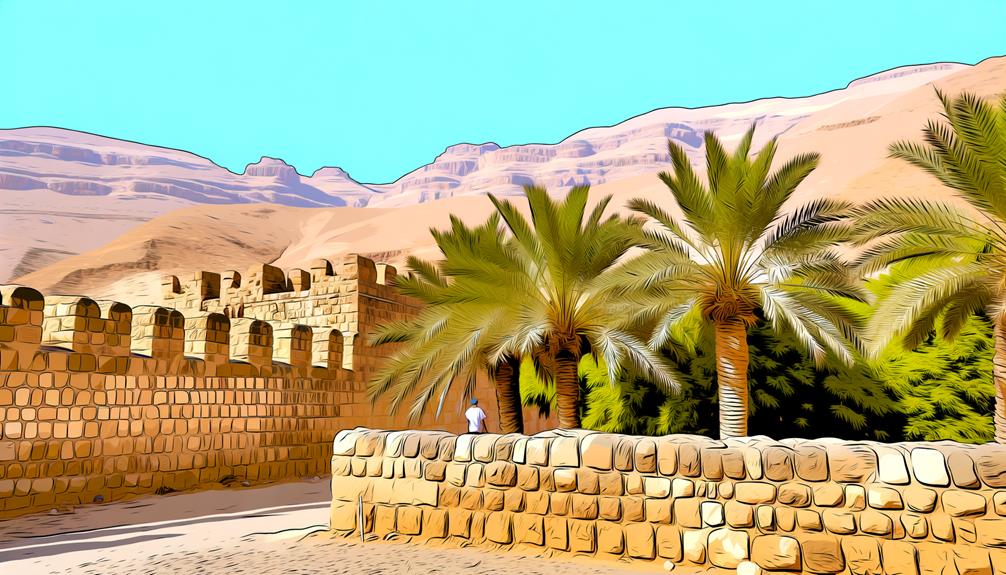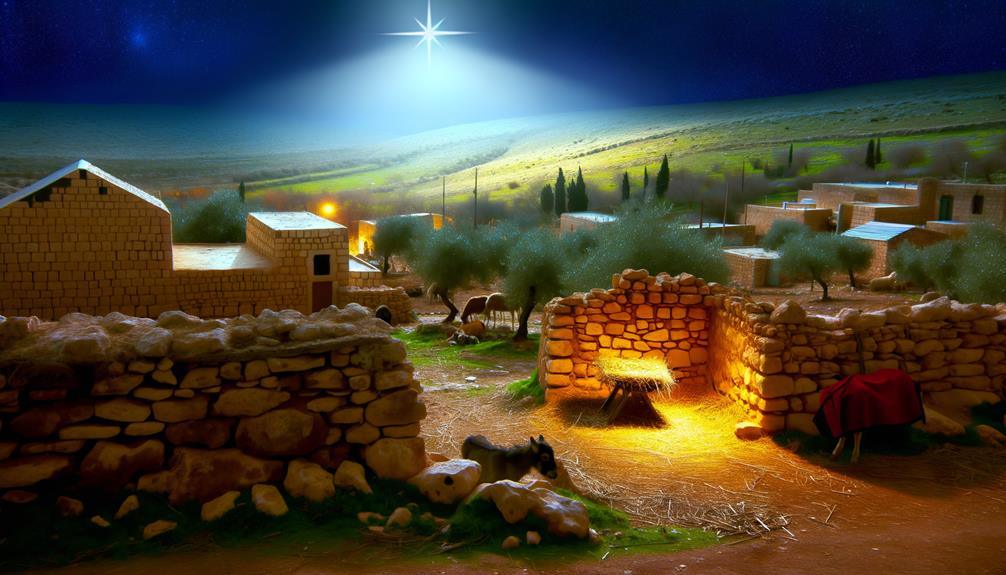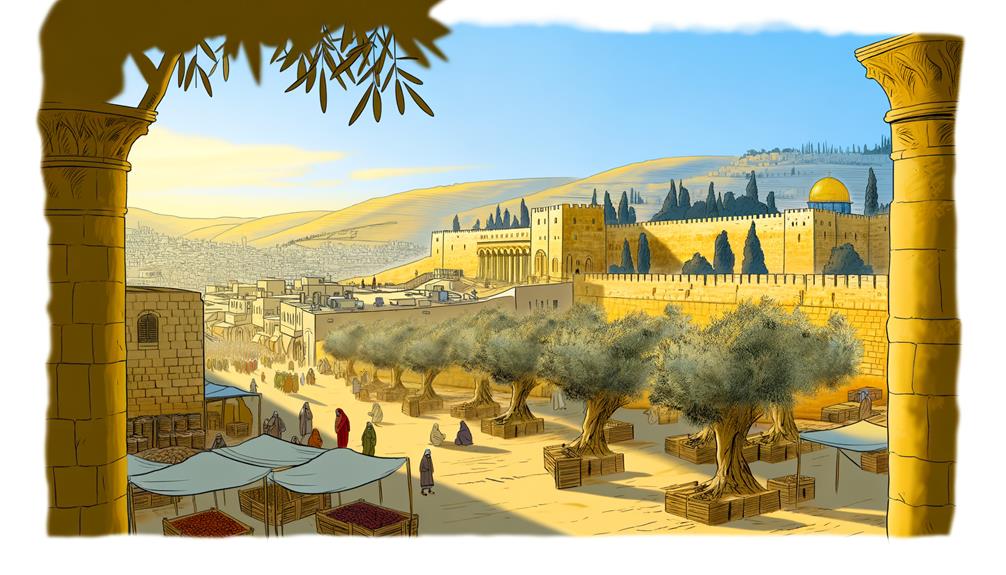Places in the Bible and Their Meaning: Sacred Geography
The Bible’s locations carry deep theological and symbolic significance, each reflecting aspects of the divine narrative. The Garden of Eden exemplifies innocence and divine harmony, while Mount Sinai is pivotal for the covenant and divine law given to Israel.
Jericho’s dramatic fall underscores themes of faith and divine intervention. Bethlehem, heralded as the birthplace of Jesus, aligns with prophetic fulfillment and Christian reverence.
Jerusalem stands as a nexus of religious history and spiritual epicenter for multiple faiths. These sites collectively enrich biblical theology and narratives, offering profound insights into spiritual principles and divine-human interaction.
Exploring these places further can unravel deeper scriptural meanings.

Key Takeaways
- The Garden of Eden symbolizes human innocence, divine harmony, and the origins of sin and redemption.
- Mount Sinai represents divine revelation, covenantal relationship, and the profound presence of God.
- Jericho’s fall underscores faith, obedience, and the transition from wandering to the Promised Land.
- Bethlehem is revered as Jesus Christ’s birthplace and fulfills prophetic texts, marking it as a key Christian pilgrimage site.
Garden of Eden

Why does the Garden of Eden hold such a pivotal place in biblical narratives and theological discussions?
The Garden of Eden symbolizes the original state of human innocence and divine harmony before the Fall. Described in Genesis, it serves as the archetypal paradise where Adam and Eve lived in direct communion with God.
This setting introduces fundamental theological concepts, such as free will, sin, and redemption. The expulsion from Eden marks the inception of human suffering and mortality, framing the narrative arc of salvation history.
Additionally, Eden’s imagery permeates biblical prophecy and eschatology, representing ultimate restoration in the new creation.
Consequently, Eden’s theological significance is profound, encapsulating essential doctrines that resonate throughout Judeo-Christian thought.
Mount Sinai

Mount Sinai stands as a monumental site in biblical history, where Moses received the Ten Commandments, consequently establishing a covenantal relationship between God and the Israelites. This event is pivotal, marking the formalization of divine law and ethical monotheism.
The mountain itself, located in the Sinai Peninsula, serves as a symbol of divine revelation and human obedience to God’s will. Scholarly interpretations often explore its geographical and theological significance, emphasizing its role in the wilderness narrative.
Theophany at Sinai, where God’s presence is manifested through fire and smoke, underscores the sanctity and awe-inspiring nature of this site. Therefore, Mount Sinai is not only a geographical location but also a profound spiritual landmark in Judeo-Christian tradition.
Jericho

Following the monumental revelations at Mount Sinai, the narrative journey of the Israelites leads to Jericho, a city whose walls famously fell after a siege marked by divine intervention and strategic encirclement.
Jericho, often referred to as the ‘City of Palms,’ is one of the oldest inhabited cities in the world. Its fall, detailed in the Book of Joshua, exemplifies themes of faith, obedience, and the fulfillment of divine promises.
The Israelites’ methodical circling of the city for seven days, culminating in a unified shout that brought down the walls, underscores the importance of spiritual fidelity and collective action.
Jericho consequently serves as a pivotal symbol of change from wandering to the conquest of the Promised Land.
Bethlehem

Bethlehem, a town steeped in historical and theological significance, is renowned as the birthplace of Jesus Christ and serves as a focal point of Christian pilgrimage and devotion. Situated in the Judean hills, Bethlehem is also celebrated in the Old Scriptures as the City of David. The town’s importance is magnified by its mention in prophetic texts, such as Micah 5:2, which foretells the birth of a ruler in Bethlehem.
| Aspect | Description | Significance |
|---|---|---|
| Biblical References | Micah 5:2, Matthew 2:1, Luke 2:4-7 | Prophecy and Nativity |
| Historical Context | Ancient City in Judea | City of David |
| Religious Importance | Birthplace of Jesus | Christian Pilgrimage |
| Archaeological Finds | Ancient structures, artifacts | Historical Validation |
| Modern-Day Relevance | Pilgrimage Site, Cultural Heritage | Religious Tourism |
Bethlehem’s enduring legacy continues to inspire faith and scholarship.
Jerusalem

Often regarded as the spiritual epicenter of the world, Jerusalem holds unparalleled significance in the religious, historical, and cultural landscapes of Judaism, Christianity, and Islam.
In Judaism, it is the site of the ancient Temple, considered the holiest place where God’s presence resides.
For Christians, Jerusalem is the setting of pivotal events in Jesus Christ’s life, including his crucifixion and resurrection.
In Islam, it is revered as the location of the Al-Aqsa Mosque, the third holiest site, and the Prophet Muhammad’s Night Journey.
Jerusalem’s layered history, marked by periods of conquest and sanctification, underscores its profound symbolic value, making it a focal point of theological reflection and interfaith discourse across millennia.
Conclusion
In exploring the profound significance of biblical locations such as the Garden of Eden, Mount Sinai, Jericho, Bethlehem, and Jerusalem, one uncovers the rich tapestry of theological, historical, and cultural narratives woven into the fabric of these places.
Each location serves as a cornerstone, supporting the edifice of sacred scripture and illuminating the divine-human relationship.
These places are not mere backdrops but pivotal characters in the grand drama of biblical history.






